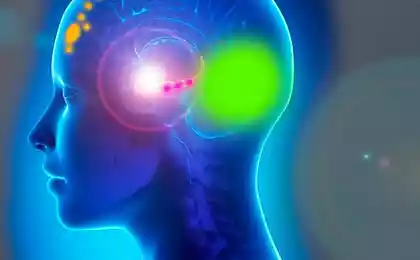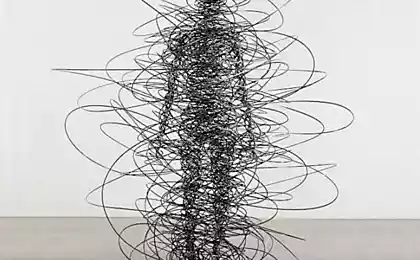560
Morbid curiosity: why we're trying to learn something that can bring the pain?
Understand, in some cases, the man's curiosity makes him do samarasosexy things, why we don't always need to go on about this feeling and how to deal with my destructive urge to overcome uncertainty.
Why people are looking for information about the new relationships their ex-lovers, read negative comments on the Internet and do other things that can hurt? A recent study published in Psychological Science, a very simple answer to these questions: because people inherently need to narrow the uncertainty. A new study shows that the need to know is so strong that people are willing to strive to satisfy his curiosity, even when it is clear that the answer would bring pain.

In a series of four experiments, scientists from the School of business. The Chicago booth the University and the Business school of Wisconsin has researched the readiness of students to expose themselves to aversive stimuli.
Aversive stimuli — events or physical sensations that a person finds unpleasant and perceived as punishment. in an attempt to satisfy the curiosity.
In one study, each participant was shown a stack of pens taken, according to the researchers, from the previous experiment. Click? Half of the handles can strike an electric shock when clicking.
Twenty-seven students explained what the pen was a surprise; others twenty-seven said only that some of the handles are electrified. Left in a room alone, students who didn't know what kind of knobs can shock, snapped more pens and subjected to a large shock than the students who knew what was going to happen. Later experiments repeated this effect with the use of other incentives such as the sound of scratching nail on a chalkboard and demonstration of unsavory photos of insects.
As says co-author Christopher C. (Christopher Hsee), the pursuit of discovery is deeply rooted in the person, along with the basic needs for food and sex. Curiosity is often considered a positive instinct, which may lead, for example, to the emergence of new scientific advances, but sometimes this kind of research can lead to unpleasant consequences. Professor of Economics and psychology from Carnegie-Mellon's George Loewenstein (George Loewenstein), who was the initiator of the scientific study of curiosity, said:
"Understanding that curiosity can get you to do samarasosexy things, the primary".
However, an unhealthy curiosity to resist. In the final experiment, participants were asked to predict how they will feel after viewing unpleasant pictures are less likely to choose that option, leading to the viewing of such images. These results indicate that a preliminary presentation of the result following the curiosity helps to determine if it's worth it. Christopher C says:
"Considering the long term implications is crucial to mitigate the possible negative consequences of curiosity".
In other words, don't read online comments.published
Also interesting: that's what happens if You "like" all the posts in social networks
The intrusion of fishers into the souls of people
P. S. And remember, just changing your mind — together we change the world! ©
Source: monocler.ru/lyubopyitstvo-cheloveka/
Why people are looking for information about the new relationships their ex-lovers, read negative comments on the Internet and do other things that can hurt? A recent study published in Psychological Science, a very simple answer to these questions: because people inherently need to narrow the uncertainty. A new study shows that the need to know is so strong that people are willing to strive to satisfy his curiosity, even when it is clear that the answer would bring pain.

In a series of four experiments, scientists from the School of business. The Chicago booth the University and the Business school of Wisconsin has researched the readiness of students to expose themselves to aversive stimuli.
Aversive stimuli — events or physical sensations that a person finds unpleasant and perceived as punishment. in an attempt to satisfy the curiosity.
In one study, each participant was shown a stack of pens taken, according to the researchers, from the previous experiment. Click? Half of the handles can strike an electric shock when clicking.
Twenty-seven students explained what the pen was a surprise; others twenty-seven said only that some of the handles are electrified. Left in a room alone, students who didn't know what kind of knobs can shock, snapped more pens and subjected to a large shock than the students who knew what was going to happen. Later experiments repeated this effect with the use of other incentives such as the sound of scratching nail on a chalkboard and demonstration of unsavory photos of insects.
As says co-author Christopher C. (Christopher Hsee), the pursuit of discovery is deeply rooted in the person, along with the basic needs for food and sex. Curiosity is often considered a positive instinct, which may lead, for example, to the emergence of new scientific advances, but sometimes this kind of research can lead to unpleasant consequences. Professor of Economics and psychology from Carnegie-Mellon's George Loewenstein (George Loewenstein), who was the initiator of the scientific study of curiosity, said:
"Understanding that curiosity can get you to do samarasosexy things, the primary".
However, an unhealthy curiosity to resist. In the final experiment, participants were asked to predict how they will feel after viewing unpleasant pictures are less likely to choose that option, leading to the viewing of such images. These results indicate that a preliminary presentation of the result following the curiosity helps to determine if it's worth it. Christopher C says:
"Considering the long term implications is crucial to mitigate the possible negative consequences of curiosity".
In other words, don't read online comments.published
Also interesting: that's what happens if You "like" all the posts in social networks
The intrusion of fishers into the souls of people
P. S. And remember, just changing your mind — together we change the world! ©
Source: monocler.ru/lyubopyitstvo-cheloveka/
How unfulfilled expectations helped find my way to my child and made me happier
Beetroot: 4 refreshing recipe























